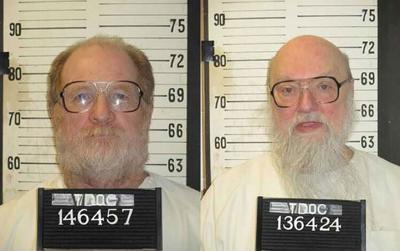The Tennessee Supreme Court scheduled the end of the state’s death penalty hiatus last week when it set two execution dates for 2022. Both men, Oscar Smith and Harold Nichols, saw their previous dates called off last year due to the COVID-19 pandemic. Now the virus has apparently receded enough to allow for the execution chamber to reopen. The court has scheduled Smith to be executed on April 21, followed by Nichols on June 9.
The state carried out a streak of executions starting in August 2018, putting seven men — Billy Ray Irick, Ed Zagorski, David Miller, Don Johnson, Stephen West, Lee Hall and Nick Sutton — to death in a little more than 18 months. Four more men, including Smith and Nichols, were set to be executed in 2020 before the governor and the state Supreme Court intervened, citing the risks associated with gathering for an execution during a pandemic. If Smith is executed on April 21, it will have been more than two years since the state last killed a death row prisoner.
Smith was sentenced to death in Nashville for the 1989 murders of his estranged wife Judy Smith and her two sons, Chad and Jason Burnett. He has always maintained his innocence. In a Dec. 30, 2019, court filing, his attorneys raise a number of issues with his case, from improper jury bias to mishandling of evidence by police. Smith was convicted and sentenced to death, they say, “based on an impossible prosecution theory that conflicts with the physical evidence.”
In a statement released after the court set his new execution date, one of Smith’s attorneys, Amy Harwell, emphasized that he also has a pending legal challenge regarding critical evidence in the case.
“Oscar Smith must not be executed before a fair hearing on his claim that the fingerprint evidence in his case was not accurate or reliable,” Harwell said. “The fingerprint examiner has been shown to have made multiple errors about print identification in this case, including failing to identify his own fingerprint. On July 1, 2021, Mr. Smith filed litigation under Tennessee’s new fingerprint post-conviction act, the first day the law allowed him to file. This litigation is currently pending in Davidson County Criminal Court. It is senseless and shocking to schedule Mr. Smith’s execution while meritorious claims challenging the reliability of his conviction and sentence and the controversial three drug protocol are pending and have not been heard.”
She also noted Oklahoma’s recent botched execution of John Grant using the same three-drug lethal injection protocol that Tennessee uses. Witnesses said Grant convulsed and vomited before he died last month.
A spokesperson for Gov. Bill Lee did not respond to a request for comment.
Because he was convicted before Tennessee adopted lethal injection as its primary execution method, Smith will be allowed to choose between electrocution and lethal injection. Five of the seven men executed in Tennessee’s recent killing spree chose the electric chair over the state’s lethal injection cocktail, which medical experts have said can lead to a prolonged torturous experience before death.
Nichols will also get that choice. He was convicted and sentenced to death in 1990 for the rape and murder of 21-year-old Karen Pulley two years earlier. Nichols was 18 when, according to court documents, he broke into Pulley’s Chattanooga home, raped her, and beat her over the head with a board. One of her roommates found her alive, but she died the next day. After police determined that Nichols was a primary suspect in several other area rapes, they arrested him. He confessed to them all.
Like many men on death row, Nichols suffered physical and sexual abuse as a child. The abuse was so severe, according to court documents, that he was taken from his family and placed in an orphanage by the leaders of the church his family attended.
Now that the Supreme Court has started scheduling executions, these two will almost certainly be followed by more soon enough. The Tennessee Attorney General’s office has requests pending for a number of execution dates. Beyond the two other men whose executions were called off during the pandemic — Byron Black and Pervis Payne, the latter of whom is awaiting a hearing on his competency to be executed — the Tennessee Attorney General’s office has also sought execution dates for several other condemned people. Among them is Christa Pike, the only woman on Tennessee’s death row.





